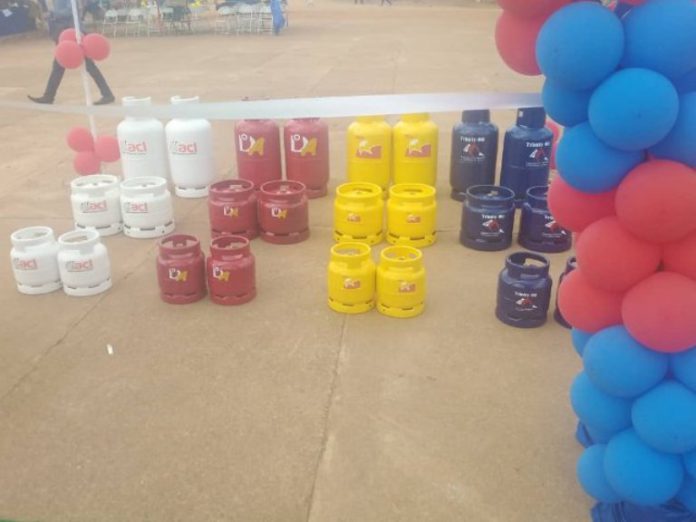The National Petroleum Authority (NPA) has begun piloting the first phase of the cylinder recirculation model in Kade in the Eastern region.
According to the NPA, the piloting phase will start with about 38,471 cylinders and will also happen in four other districts.
Speaking at the launch, the Deputy of Minister Energy, Dr Mohammed Amin Adam, assured the government would continue to create jobs and seek the wellbeing of LPG consumers in the country.
Dr Adam added that there is currently a discussion going on with the jubilee partners to produce more than 50 per cent of gas locally.
It is expected that the cylinder recirculation model will help increase the current LPG use from 25 per cent to 50 per cent.

The new model
The proposed new LPG distribution model will begin with the LPG Bulk Distribution Company (LBDC), whose responsibility will be to either import or buy the LPG from local refineries or/and gas processing plant, such as Tema Oil Refinery and Ghana National Gas Company, and store the LPG in their Bulk Storage facility.
The LBDC will then sell the LPG in bulk to either the Bottling Plant for the sole purpose of filling the empty cylinders or to the LPG Marketing Companies (LMCs) for bulk sale to industrial end-users – factories, restaurant, and mini-power plants- and also to autogas users.

The LPG Bottling Plant Company will be responsible for filling the empty cylinders for onward distribution to LMCs. The LMCs will be responsible for procuring, branding, and maintaining the cylinders.
Specialised trucks will be used to transport the filled cylinders from the bottling plants to the retail stations or exchange points, where consumers will exchange their empty cylinders for filled ones.

A minimum of 4,000Mt capacity storage depot shall be used as the primary
receiver of LPG either from imports or from domestic production, with
gantry facilities for discharge into BRVs. This will be the preserve of
an LBDC.
The LPG bottling plant is expected to have a minimum storage capacity of 250Mt with an automated bottling plant and a filling capacity of 1,000 cylinders per hour. The country will be zoned for the siting of these bottling plants. However, the distribution of their filled cylinders will not be limited to any particular zone

